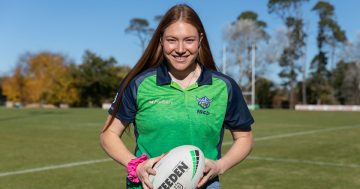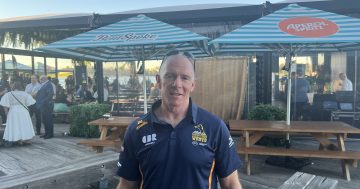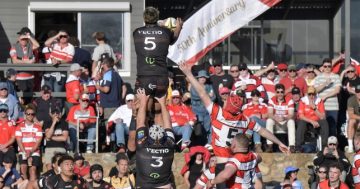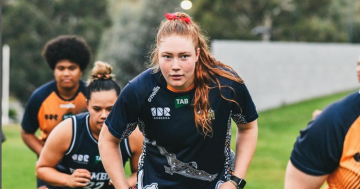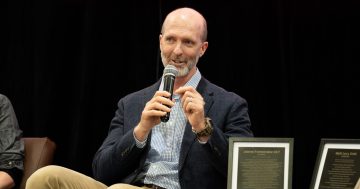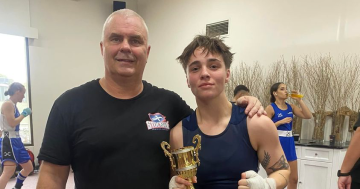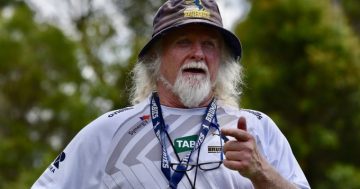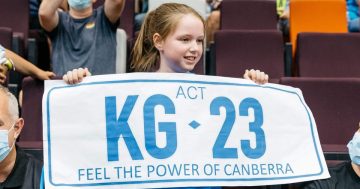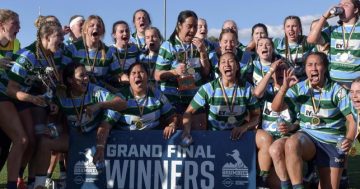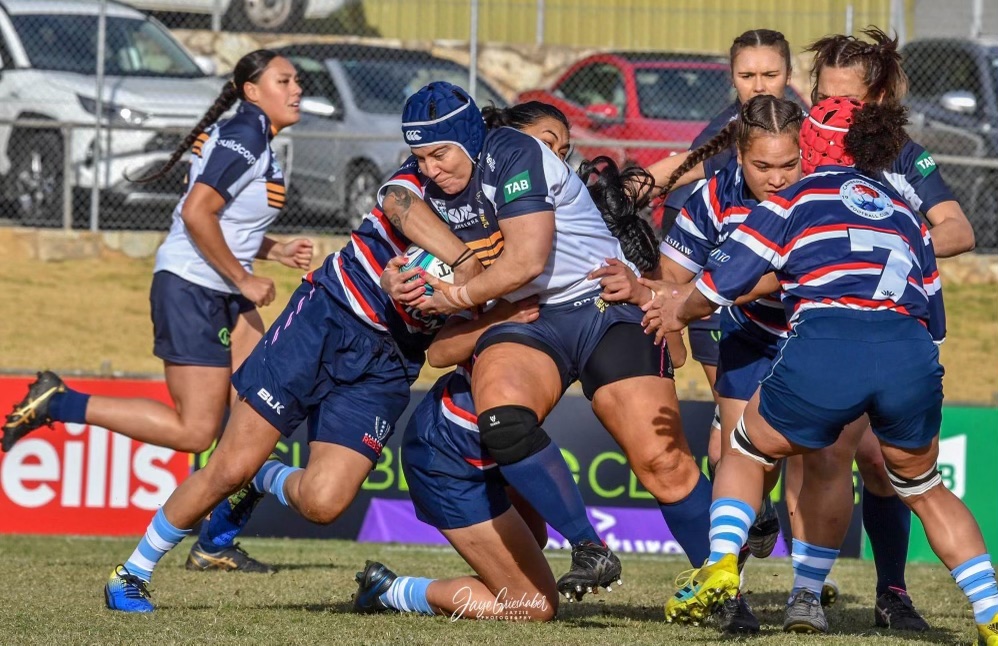
Always determined. Louise Burrows playing for the Brumbies in the W League. Photo: Supplied.
At 46 years of age, Louise Burrows was eligible to play veterans rugby about 11 years ago.
However, there was unfinished business in 2013, including two more World Cups in 2014 and 2017. This was on top of World Cup appearances in 2002 and 2006.
Very few male or female players have taken part in four World Cups. Only three other Wallaroos have played in four: Tui Ormsby, Sharni Williams and Shannon Parry.
Only three Wallabies have done the same: James Slipper, George Gregan and Adam Ashley-Cooper.
But comparisons with male counterparts don’t take into account a number of variables between men’s and women’s elite rugby, not the least the fact that women are forced to combine raising a family, often working full-time, training and playing.
It is important to raise these points with Louise spending much of her career advocating for equality. In many respects, it is harder for women than men to play elite rugby in Australia.
In one case, Louise campaigned for decent change rooms for female players instead of changing in car parks in preparation for training and games.
She played 22 tests for Australia, and over 150 games for the ACT and the Brumbies after making her representative debut in 1995.
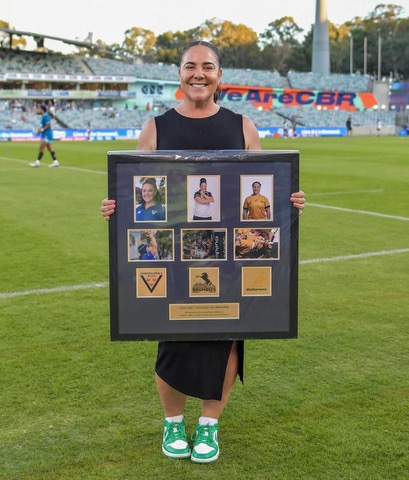
Louise Burrows is acknowledged for her contribution to women’s rugby in the ACT. Photo: Jayzie Photography.
In the end, the decision to retire was forced upon her after she missed selection in the Brumbies Super W squad.
After 27 years with the Brumbies, it was a bitter pill to swallow.
“I was asked to announce my retirement by the Brumbies when I was told that I was cut from the squad,” said Louise.
“I didn’t want to announce my retirement then as I wanted to have control over when I did announce it. Late last year I decided that I was ready to announce my retirement from representative rugby sometime this year.”
She added, “When the Brumbies announced that they were going to recognise my contribution to rugby over the years with a presentation at a Super W game, I decided the time was right to announce my retirement.”
After so many years in the game, Louise had lost something that had been a major part of her life. But similar to so many things that had happened to her in the past, she very quickly extrapolated this experience in terms of others.
“I think many athletes like myself have not had an opportunity to go out on their terms. I know I’m not alone but I want to advocate to support other athletes transitioning from being an elite athlete. We get told we’re cut and then no support.”
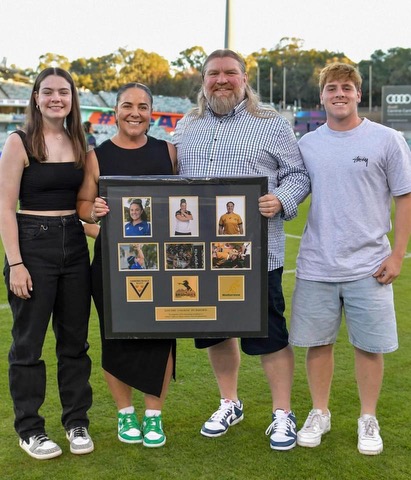
Louise and family at GIO Stadium on the announcement of her retirement. Photo: Jayzie Photography.
“I know that as female athletes, we have to get on with our daily lives of working, studying, being a mum, etc, but it is still really hard. Rugby is a big part of your life one minute, and then it’s gone. I devoted so much time and was so passionate and loyal, even without getting paid, and for it to just end, it is really hard.
“You lose your identity and that sense of belonging. It’s a dark time for any athlete, myself included. I was fortunate to have the support of family and friends as without that I would’ve struggled even more than I did. I think more can be done in this space and I hope I can help other athletes as they transition from being an athlete.”
While she may have retired, Louise may play the occasional game for Royals, but at this stage, it’s likely to be more of a mentoring role: “I am really enjoying the gym and training at the moment for myself and not rugby for the first time in my adult life. It’s a really nice change for me.”
And then there’s her family.
“My son Fletch is playing seniors rugby and I am looking forward to being there to support and watch him, something as an athlete I haven’t always been able to do due to my own sports commitments, and I’m really excited about this change in pace.”
While Louise may not be in a space at the moment to fully reflect on the impact she has made on women’s rugby, particularly the push for equality, in years to come, a generation of female players will acknowledge the role she has played in ensuring an even playing field.












